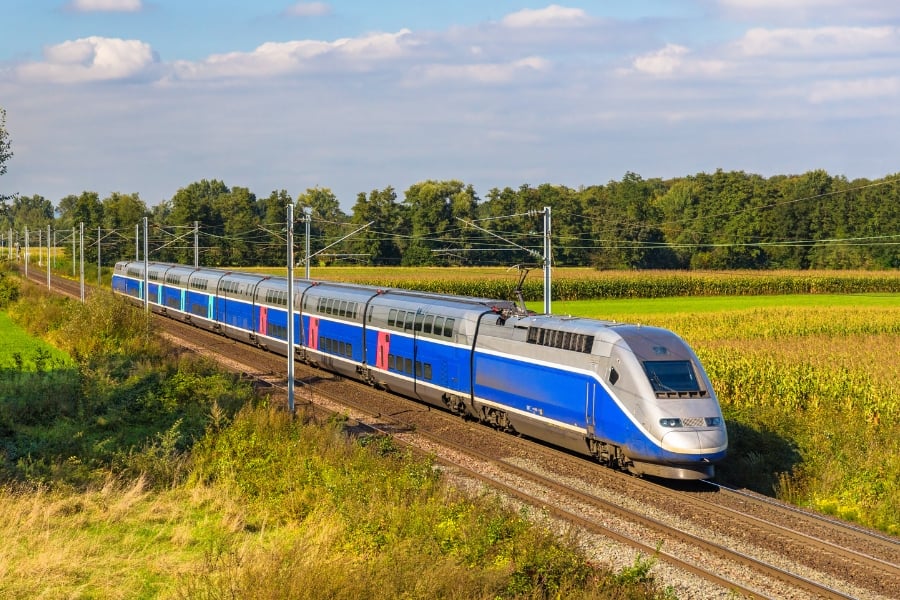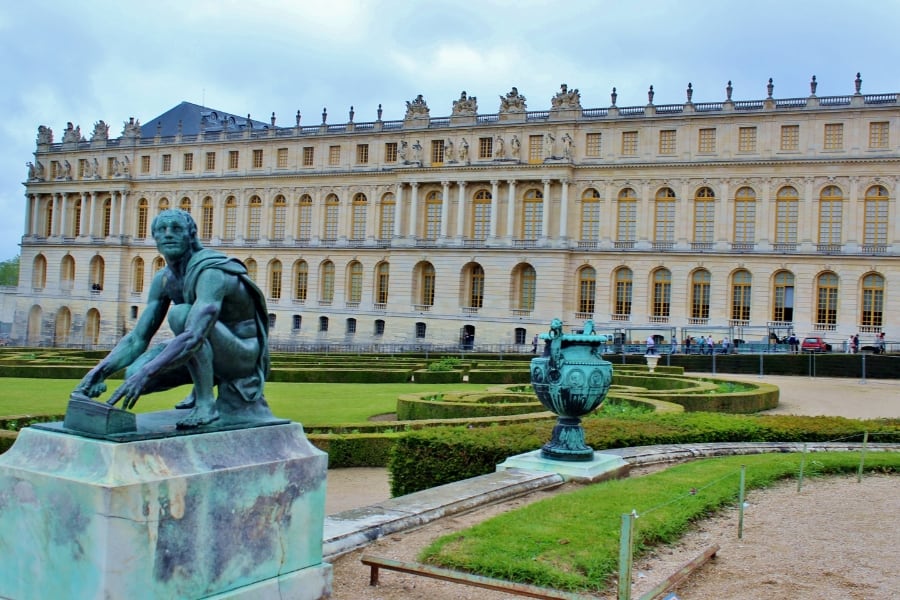France Travel Guide
Written by Joeri Van Overloop
Why Visit France?
France is one of the most visited countries in the world, renowned for its unrivalled culture, history, and cuisine. From charming French coastal towns to bustling metropolises, there's something for everyone in this diverse nation. Whether you're a foodie, an art enthusiast or simply looking for a unique vacation experience, France has it all to offer.
With beautiful landscapes and centuries-old cities filled with heritage sites, there's no shortage of unforgettable experiences waiting to be explored. Let's sum up a few reasons to travel to this beautiful country in our France travel guide.
Rich cultural heritage: France is known for its rich cultural heritage, including famous landmarks like the Eiffel Tower, Louvre Museum and Notre-Dame Cathedral.
Delicious cuisine: French cuisine is renowned for its high-quality ingredients and culinary techniques, making it a top destination for food lovers.
Beautiful scenery: France offers a range of stunning landscapes, from the beaches of the Côte d'Azur to the mountains of the Alps.
Fine wine: The country is famous for its wine, particularly in regions like Bordeaux and Champagne.
History and art: France has a rich history and is home to many famous works of art, including the Mona Lisa and the Winged Victory of Samothrace.
Fashion: France is a major center for fashion and style, with many famous fashion houses located in Paris, the capital city.
Language: French is considered one of the most beautiful languages in the world and learning the language can be a great experience while on holiday.
Spa and relaxation: France has a rich tradition of spa and wellness, with famous spa towns like Vichy and Evian offering a range of relaxing treatments and experiences.
In summary, France offers a rich cultural heritage, renowned cuisine, beautiful scenery, fine wine, a rich history and art, fashion, opportunities to learn French, and spa and relaxation experiences. These make France a top destination for those seeking a blend of cultural, culinary, and leisure activities.
Frequently Asked Questions When Travelling To France
What Is A Good Budget For A Trip To France?
The cost of a trip to France will depend on various factors such as the time of year, the length of stay, the location, and the type of accommodation and activities. On average, a budget of around €50-€100 per day is a reasonable estimate for a mid-range trip, including accommodation, food, and some activities.
However, this amount can be adjusted up or down depending on personal preferences and the level of luxury desired. Keep in mind that cities like Paris and Nice can be more expensive, while smaller cities and rural areas may offer more affordable options.
Accommodation: The cost of accommodation in France can vary widely depending on the type of accommodation, location, and time of year. Here are some general ranges:
Hostels: prices start from around €15-€30 per night for a shared dorm room.
Budget hotels: prices can range from €50-€80 per night for a double room.
Mid-range hotels: prices can range from €80-€150 per night for a double room.
Luxury hotels: prices can start from around €150 and go up to several hundreds of euros per night for a double room.
Vacation rentals: apartments and villas can offer a more homely feel, with prices starting from €50-€100 per night.
Food and Drinks: The cost of food and drinks in France can vary widely depending on the type of food, location, and whether you're eating out or cooking for yourself. Here are some general ranges:
Eating out: prices can range from €10-€15 for a simple cafe meal to €30-€50 or more for a multi-course meal in a high-end restaurant.
Fast food: prices can start from around €5 for a sandwich or burger.
Groceries: prices for basic food items such as bread, cheese, and fruit can start from around €5-€10 per day, depending on the location and quality of the food.
Drinks: a cup of coffee can cost €3-€5, while a glass of wine can start from around €5.
Transportation: The cost of transportation in France will depend on various factors such as the distance traveled, the mode of transportation, and the time of year. Here are some general ranges:
Train: prices for a one-way ticket can range from €5 for a regional train to €50 or more for a high-speed train.
Bus: prices for a one-way ticket can start from around €1-€5, depending on the distance traveled.
Taxi: prices can start from €5-€10 for a short trip, but can quickly add up for longer distances.
Renting a car: prices can range from €30-€50 per day, but can vary widely depending on the type of car and rental company.
Bike rental: prices can range from €5-€15 per day, depending on the location and rental company.
Activities and Excursions: The cost of activities and excursions in France can vary widely depending on the type of activity and location. Here are some general ranges:
Museums: admission to most museums in France can range from €5-€15, with some more famous museums like the Louvre in Paris costing more.
Monuments and attractions: admission to famous monuments and attractions like the Eiffel Tower can range from €10-€25.
Day trips: prices for day trips to nearby attractions and sights can range from €30-€100 or more, depending on the distance traveled and type of activity.
Adventure activities: prices for activities like kayaking, rock climbing, and paragliding can range from €50-€100 or more, depending on the duration and location of the activity.
Wine tasting: prices for wine tasting experiences can range from €15-€50 or more, depending on the type of wine, location, and duration of the experience.
It is important to keep in mind that this is a rough estimate and your actual budget may vary depending on your preferences and travel style.
How Many Days In France Is Enough?
The number of days you should spend in France will depend on your personal interests and travel style. However, here are some suggestions for different itinerary lengths:
Short trip (3-5 days): If you only have a few days in France, you might consider focusing on one city, such as Paris, and taking the time to explore its famous landmarks, museums, and neighborhoods.
Week-long trip (7 days): With a week in France, you could visit multiple cities, such as Paris, Nice, and Marseille, or spend more time in one city and take a day trip to a nearby attraction.
Two-week trip (14 days): With two weeks in France, you could spend a week in Paris and a week in another region, such as the French Riviera, the Loire Valley, or Burgundy. You could also explore smaller towns and villages and visit regional vineyards and châteaux.
What Is The Best Way To Tour France?

The best way to tour France will depend on your personal preferences and interests. Here are some popular options:
Self-guided tour: Rent a car or take public transportation and explore France on your own. This option allows for maximum flexibility and the ability to set your own pace.
Guided tour: Join a guided tour of France with a local guide who can provide insight and context to the sights you visit. This option is ideal for those who want a more structured experience and don't want to worry about logistics.
Rail tour: Take a rail tour of France and enjoy scenic journeys by train. This option is ideal for those who want to see many parts of France and want a more relaxed mode of travel.
Food and wine tour: Join a food and wine tour of France and visit local vineyards and markets, taste regional specialties, and learn about French cuisine.
Active tour: Join an active tour of France and engage in activities like hiking, biking, or kayaking. This option is ideal for those who want an active and immersive experience.
Remember, these are just a few options, and the best way to tour France for you will depend on your personal interests and travel style. You may also want to consider the time of year, as some activities and regions may be more accessible or appealing during certain seasons.
What Is The Best Time To Visit France?
The best time to visit France will depend on your personal preferences and the type of experience you're looking for. Here are some factors to consider:
Weather: The warmest months in France are June, July, and August, when temperatures can reach into the mid-20s to low 30s Celsius. Winter months, from December to February, can be cold and wet, with temperatures ranging from 5 to 10°C.
Crowds: Peak tourist season in France is from June to August, when many tourists flock to the country and many popular attractions can get crowded. The shoulder months of April to May and September to October tend to have fewer tourists and milder weather.
Festivals and events: France is known for its many festivals and events, such as the Cannes Film Festival, the Fêtes des Vendanges de Montmartre, and the Tour de France. Consider timing your trip to coincide with one of these events if they interest you.
Availability of activities: Some outdoor activities, such as hiking and skiing, may only be available during certain times of the year.
Ultimately, the best time to visit France will depend on your personal preferences and the type of experience you're looking for. Consider researching weather conditions, crowd levels, and festival schedules to help you make an informed decision.
What Are The Dos And Don’ts In France?

Here are some dos and don'ts to keep in mind when visiting France:
Do's:
Learn some basic French phrases: Knowing a few words of French can go a long way in showing respect for the local culture and making your trip more enjoyable.
Dress nicely: French people generally have a strong sense of fashion and tend to dress nicely, even when they're just going out for lunch or running errands.
Try the local cuisine: French cuisine is renowned around the world, and trying local dishes is one of the best ways to experience French culture.
Be polite and respectful: French people are known for their politeness and respect for others, so be sure to show the same in return.
Tip appropriately: Tipping is expected in France, with 10% being the standard for good service in restaurants.
Don'ts:
Avoid speaking loudly: French people tend to be reserved, and speaking loudly in public can be seen as rude.
Don't be late: Punctuality is important in French culture, so try to arrive on time for appointments and events.
Don't litter: Littering is not tolerated in France and can result in fines.
Don't assume everyone speaks English: While many French people speak English, it's always a good idea to know a few basic French phrases, especially when dealing with local merchants or service providers.
Don't skip the queue: French people generally respect lines and queues, so be sure to wait your turn.
By following these dos and don'ts, you'll be able to have a more enjoyable and culturally respectful trip to France.
What Are The Visa Requirements For France?
The visa requirements for France will depend on your country of origin and the purpose of your trip. Here are some general guidelines:
Schengen Area visa: Citizens of many countries, including the US, Canada, Australia, and New Zealand, need a Schengen Area visa to visit France for stays up to 90 days. This visa is usually issued for tourist or business purposes.
Long-stay visa: if you're planning to stay in France for more than 90 days, you'll need to apply for a long-stay visa. This visa will be issued for study, work, or family reunification purposes.
Documentation: when applying for a visa, you'll typically need to provide proof of your identity, travel itinerary, and financial means, among other documents. Check the specific requirements for your country of origin and visa type.
It's important to note that these requirements are subject to change and can vary based on your individual circumstances, so it's always best to check with the French embassy or consulate in your home country for the most up-to-date information.
Do I need Travel Insurance To Visit France?
While travel insurance is not legally required to visit France, it is highly recommended. Travel insurance can provide coverage for unexpected events such as trip cancellations, medical emergencies, lost or stolen luggage, and more.
Having travel insurance can give you peace of mind and help protect you from financial losses in case of unexpected events. Be sure to carefully review your policy and understand what it covers and what it doesn't, so you're prepared in case of an emergency.
It's always best to have travel insurance when traveling, regardless of your destination, to ensure that you're protected in case of unexpected events.
How To Stay Safe In France?
France is generally considered a safe country for travelers, however, like in any large city or tourist destination, there is always a risk of petty crime such as pickpocketing and theft.
It's important to take the usual safety precautions, such as being aware of your surroundings, keeping valuables secure, and avoiding dangerous areas, especially at night.
It's also advisable to stay informed about current events and potential security threats, such as terrorism, and to follow the advice of local authorities.
Overall, with the right precautions, France can be a safe and enjoyable destination for travelers.
Where To Stay In France?
The Best Booking Resources For France
These are the companies I use predominantly when I travel. They offer great customer service and the best value, consistently outperform their competitors, as they always have excellent deals. I rely on them the most, and they are the starting point in my search for travel deals.
Booking.com - This is the best travel partner when it comes to planning your vacation in France. With over 28 million listings in more than 200 countries and territories, you'll have no problem choosing from the world's most comprehensive selection of accommodations - from exotic villas to cozy apartments! Booking.com offers a secure and convenient way to book your next holiday, with unbeatable deals that will make sure you get the best value for your money when travelling to France.
Skyscanner - This is the perfect tool for finding the best flights at the best prices to France. With a comprehensive selection of airlines to choose from, you can compare prices and routes in seconds - saving you time, stress and money. Skyscanner's intuitive search engine makes it easy to find great deals on domestic and international flights. Plus, you can easily customize your search preferences so you get results that fit your budget and destination needs.
Get Your Guide - Are you looking for ways to make your travel experiences more memorable? With GetYourGuide, you can book amazing activities, tours and attractions all over France. Whether it’s a tour of an iconic city landmark or unique experience that’s off the beaten path, GetYourGuide offers something spectacular for any traveler. With thousands of things to do and see in different cities around France, this platform simplifies the search process with user-friendly filters.


